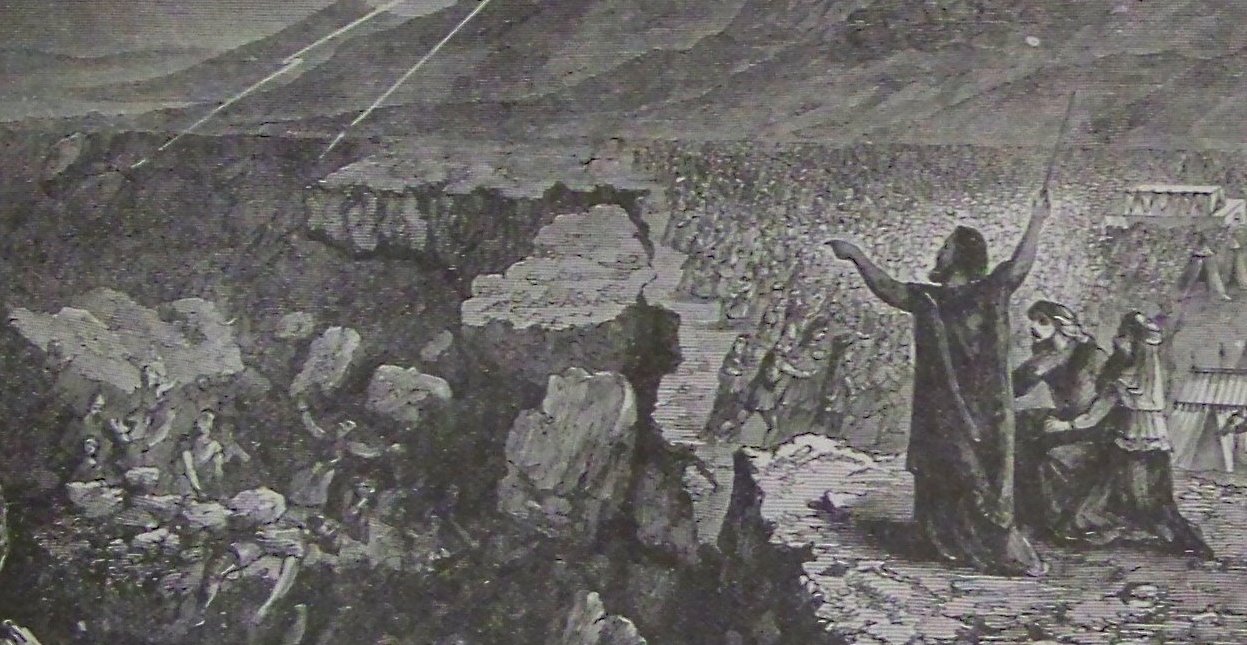Commentary on Parashat Korach, Numbers 16:1-18:32
Parshat Korach poses a challenge for modern readers who treasure the values of equality and democracy. As the parashah opens, a Levite named Korach gathers 250 men and aggressively challenges Moses’ right to lead:
“You have gone too far! For all the community are holy, all of them, and God is in their midst. Why then do you raise yourselves above God’s congregation?”
Throughout the rest of the parashah, a competition of sorts ensues between Korach and his followers on one side, and Moses and his brother Aaron on the other. With God’s direct intervention, Moses and Aaron remain in power as the rightful rulers while Korach and his immediate circle are swallowed by the earth. In one memorable moment, Aaron’s staff magically bursts into bloom, supernaturally signifying that he is the rightful head of the priestly class.
Korach’s sentiment seems in line with the ideals of democracy, which at its heart eschews the divine right of kings to rule as well as hierarchical inherited class status. Why should Moses be a permanent leader of the people? After all, God has declared all Israel holy. Moses and Aaron’s victory over Korach and his followers appears to reinscribe the class stratification of priests over Levites and Israelites.
With your help, My Jewish Learning can provide endless opportunities for learning, connection and discovery.
When we read a bit closer, however, we see that the fight dramatized by this parashah is not between the people and their leaders, but between competing elites. Despite the sweeping language of Korach’s demand that “all the community are holy,” his initial followers are all “chieftains of the community, chosen in the assembly, men of repute.” In other words, members of the leadership.
Moreover, Moses addresses the group of rebels as the “sons of Levi,” emphasizing that they have already been elected over the rest of the Israelite tribes to serve in the Temple. This is primarily a rivalry within the tribe of Levi, between the line of Aaron, the priestswho work in the Temple, and the Levites, the class that were appointed to assist the priests in that work. Korach is not a crusader for the equality of every man and woman. Rather, his rebellion represents a jockeying for power amongst the highest classes, a competition for the seat at the very top of the pyramid.
From Moses’s origin story we can already see his persona is the opposite of Korach’s: Moses is a modest leader who found greatness thrust upon him. Due to the bravery of his mother and sister, combined with the compassion of Pharaoh’s daughter, Moses became the only Israelite ever raised in the house of Pharaoh, thus escaping the hardships of slavery. His impulse to defend the powerless led him to kill an Egyptian guard who was beating a Jewish slave, which led to another chapter in his life in the wilderness, where he may have lived out his life had God not demanded he return to Egypt to lead the Israelites out of slavery. And let’s not forget, Moses repeatedly refused God’s appointment of him to that role, before finally reluctantly accepting.
In our own parashah, Moses’ immediate reaction to Korach’s protest is not to fight but to “fall on his face,” a posture of submission to God and an embodied prayer for help. Moses, who several times complains to God about his burden as leader, is at a loss for words and seeks help from God before he finds the strength to go toe-to-toe with Korach.
Despite the attack on their leadership, several times in this parashah Moses and Aaron intercede on behalf of the people. God wants to eviscerate the entire rebellion, but Moses and Aaron plead that God only punish Korach, the ringleader. Later, when God angrily casts a fast-spreading plague, Aaron risks his life to save lives: “he stood between the dead and the living until the plague was checked.“ His presence and dedication to the people stops the expression of God’s dangerous wrath.
Despite the divine backing that Moses and Aaron receive, which is admittedly undemocratic, they model several values of leadership that are the opposite of what we expect in authoritarian dictatorships. They did not seek the most powerful position, but accepted upon themselves the burden and needs of the community. They show tireless dedication and loyalty to the people even though it might have been easier to let those who seek power and prestige take the position.



